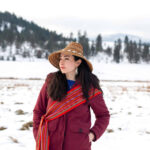Balancing Science and Self-Care with Climate Researcher Janna Wale
By Karen Pinchin
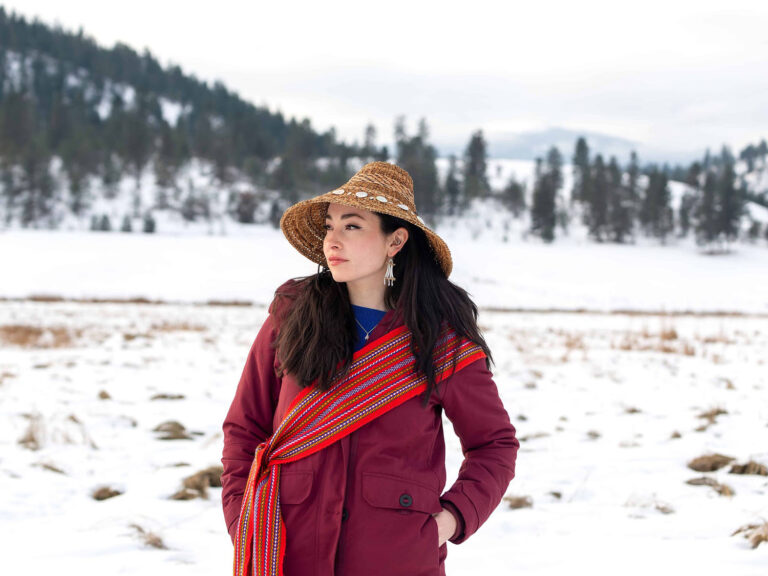
Courtesy of Yellowhead Institute
As a young Gitxsan and Cree-Métis girl growing up in Gitanmaax First Nation in northern British Columbia, Janna Wale loved school—even to the point of wanting to do her sister’s homework for her. Once her family moved away to the city, they returned every year for her community’s annual salmon harvest, and with every visit, something became clearer: the salmon were disappearing. Spurred to do something, Wale pursued her passion for learning into the natural sciences. Now a policy advisor at the Canadian Climate Institute, Wale talks to Karen Pinchin about her earliest memories and the educators who helped her integrate her scientific career with her Indigeneity.
Can you tell me about your earliest memories of how nature’s cycles were being altered by human behaviour?
Climate change is something our communities have been speaking about since I can remember; it’s never really been something I didn’t experience. There were always conversations when we were [fishing] or going up to pick berries: “When I was little, it was like this.” It was always talked about as something that was happening to us, rather than something we had an active role in contributing to, and also fighting against. Salmon got me thinking about climate because the fish are so important to our culture; our community is a fishing community. Growing up away and coming back every year, fishing was how I connected to my identity as a Gitxsan person. Having that be at risk motivated me to figure out what I could do and where I could contribute.
After the challenges of an undergraduate degree in natural resource sciences at Thompson Rivers University, what inspired you to keep working toward your graduate degree?
To get into spaces where decisions are being made about the environment, it does, honestly and unfortunately, require more of that Western education. To advocate for the changes I want to see, I needed to be in these rooms, either as somebody who can speak to these issues, or even just as somebody who’s creating space and representing our communities until somebody else is able to come up behind me. Indigenous people specifically have been left out of conversations relating to the environment and our natural resources, and I wanted to be able to help create that change. But it was difficult. I did my honours thesis on environmental racism, and the question I proposed was: If you expose students at the beginning of the year to more Indigenous content, does their perception of Indigenous people change over time related to natural resources? At the end, my supervisors said, “This is amazing research, but we don’t know how we’re going to mark this. We haven’t even thought about these things.”
Can you tell me about one educator or teacher in particular who shaped your path as an academic, and what it was about their mentorship and method that you found inspiring?
In my undergrad, Dr. Sereana Naepi, who is from New Zealand, got me interested in the idea of Indigenous research. Up until that point, I hadn’t thought about what Indigenous scholarship looks like, because I had no metric. In that program, there was nothing about how Indigenous people could be researchers, that Indigenous people are scientists. She wasn’t in the faculty of science, but she still told me, “No, we belong here. And your voice is valuable.” It was about her making the time for me to explore research that was important to me, and how I could use that to create the future that I wanted to see. It was just about creating space and time.
Can you talk a bit about the work you do now, and how your training and experience has brought you to this moment of doing work on climate?
My generation is the generation that’s hyper-aware of the changes we’re seeing, and a lot of people are feeling that grief and anxiety. A lot of the advice you get is, “Go connect with nature; go outside.” I find that hard because outside is where the changes are happening. It’s December in British Columbia right now, and we have no snow. I’ve never experienced that in my life. It’s hard. But for me, working through that is about finding agency in those difficult moments and helping to find solutions with the capacity that I have. For me, it is about connecting to my home territory, even when that’s difficult, and making sure that I’m in a good place to contribute.
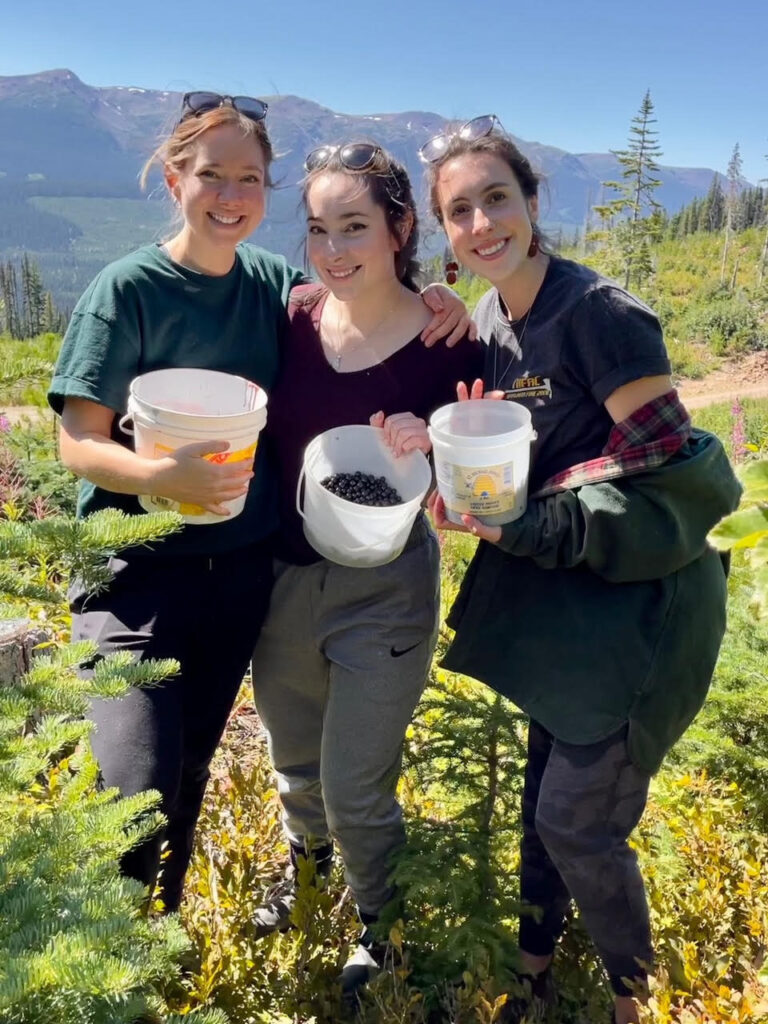
Wale (middle) harvests huckleberry with family members Kate and Alyssa Wale. 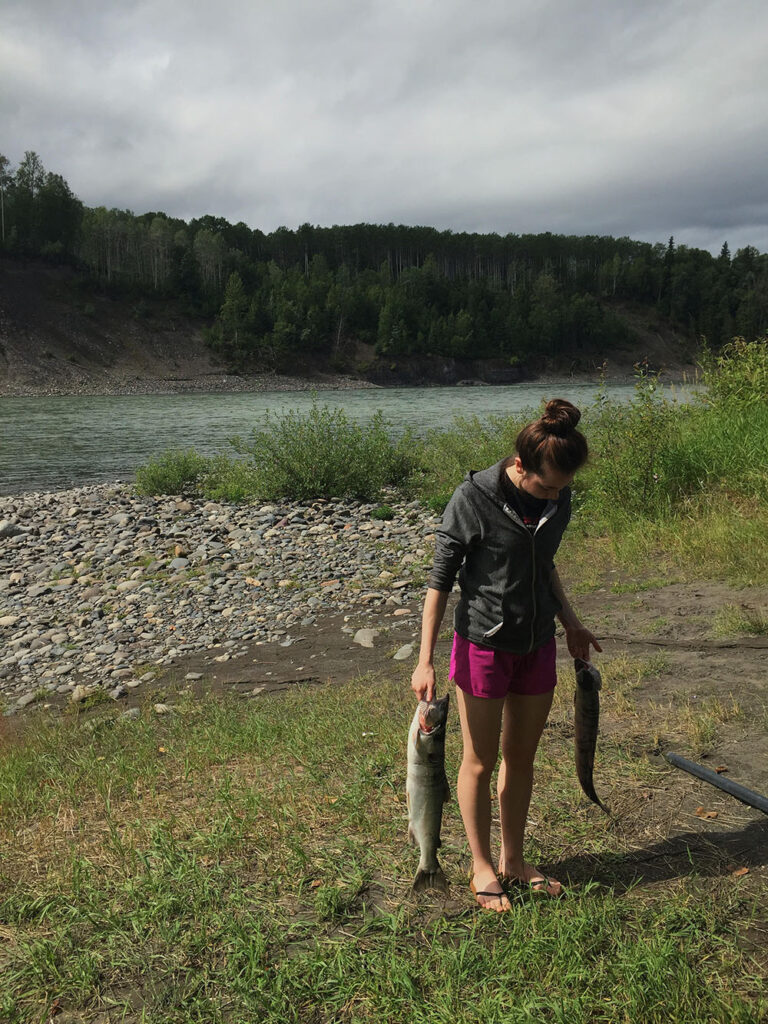
Wale processes salmon at Ksan, in Gitanmaax, in front of the Skeena River. 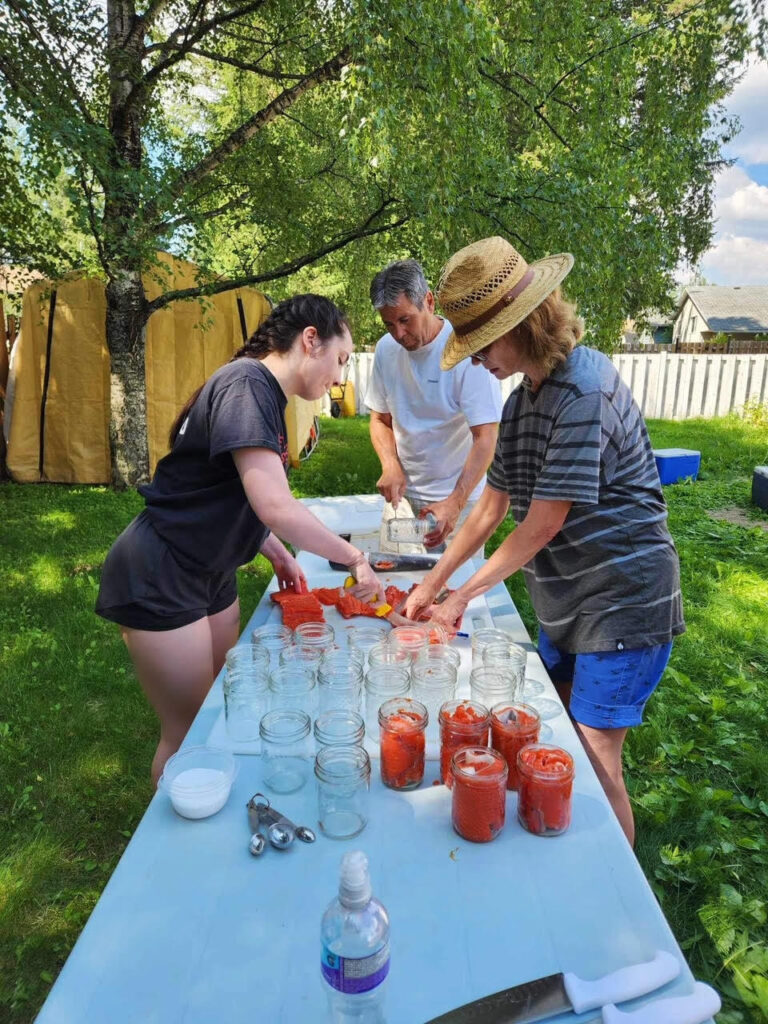
Wale (left) packs sockeye salmon for the winter months.
Right: Courtesy of Joshua Wesley
Middle: Courtesy of Shae Wale
Left: Courtesy of Maury Wale
So perhaps you’re then more attuned to observations in nature, like when salmon do return to rivers after being absent for decades—that there can be beautiful recoveries, and nature is strong?
I expressed this to a community member, and it completely changed my thinking. He was so wise and I’ve carried his words with me. I said that I felt like everything should have been done yesterday, that we’re moving too slowly, and the changes are happening so fast. He said, “You need to think about it from a seven-generations principle. It’s your job to move the work forward as much as you can, and then trust that the next generation is going to pick up where you left off.” It really took some of the urgency off. It is an urgent problem, but it’s not just me against this problem. It’s not just us against this problem. There are lots of good minds—now and in the future—that are going to help bring us through this. That’s what gives me hope.
What advice or perspective would you give a younger version of yourself?
It may not get easier, but you’re going to get stronger. Try to enjoy and be proud of the work that you’re doing. You’re going to learn so much.
This conversation has been edited and condensed for space and clarity.
